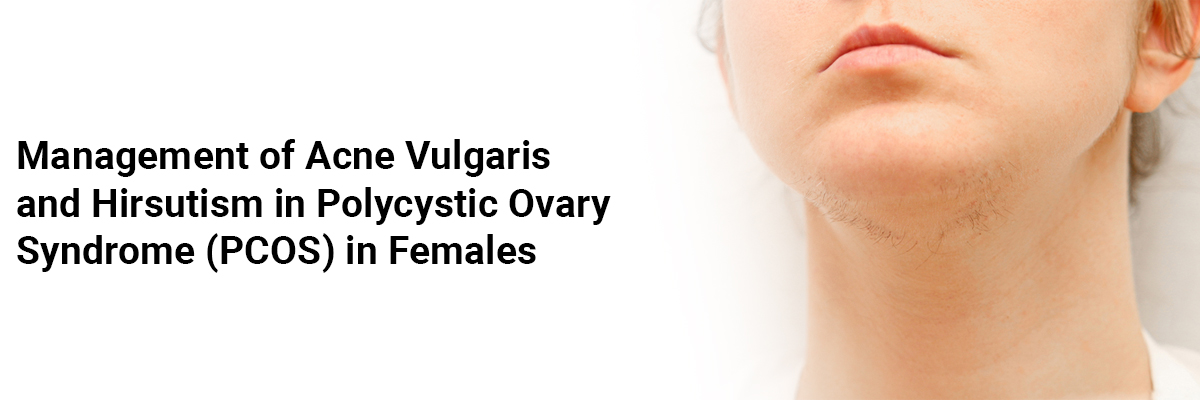
 IJCP Editorial Team
IJCP Editorial Team
Management of Acne Vulgaris and Hirsutism in Polycystic Ovary Syndrome (PCOS) in Females
Acne vulgaris and hirsutism are prevalent and distressing issues among females with polycystic ovary syndrome (PCOS). Effective treatment options are available; however, they may require several months to yield noticeable clinical improvements. This set of practice updates aims to provide evidence-based advice for managing hirsutism and acne in PCOS patients.
Management of Hirsutism:
Cosmetic and Direct Hair Removal Measures:
Cosmetic and direct hair removals measures, such as shaving, waxing, and plucking, can be employed as initial management options for hirsutism.
Medical Treatment:
Antiandrogen Receptor Antagonists: Antiandrogen receptor antagonists, such as cyproterone acetate and eflornithine, are recommended for the management of hirsutism in PCOS patients.
Treatment Timeline:
It is important to counsel patients that hirsutism treatment may take several months to demonstrate clinical response and the full benefits may not be observed for over a year.
Management of Acne:
Determining Treatment Approach:
The choice of acne treatment depends on its severity and impact on the patient's quality of life.
Topical Treatments:
Topical treatments, including antibiotics, retinoids, and antiandrogen drugs, are effective options for managing acne. These treatments target various key factors responsible for acne development. However, they do not directly affect sebum production.
Systemic Treatments:
Systemic therapies, such as oral antibiotics, retinoids, and androgen suppression through oral contraceptives, are recommended for acne treatment. Oral antibiotics are commonly prescribed for moderate to severe facial and truncal acne unresponsive to topical therapies.
Combination Therapy:
- Antiandrogen Therapy and Contraception: When prescribing antiandrogen therapy, optimal contraception should be chosen to manage the potential risk of pregnancy and to address irregular menstruation. Combination oral contraceptives (COCs) are recommended as they not only serve as effective contraception but also help manage irregular menstruation caused by antiandrogens.
- Photodynamic Therapy and Laser Treatment: A comprehensive analysis suggests that photodynamic therapy and various laser light sources have shown effectiveness in treating inflammatory acne lesions, providing short-term improvements.
These practice guidelines emphasize the management of acne vulgaris and hirsutism in females with PCOS. Treatment options include cosmetic measures, medical interventions such as antiandrogen receptor antagonists, topical and systemic medications, and combination therapy with COCs. Photodynamic therapy and laser treatments can also be considered for acne management. Clinicians should individualize treatment plans based on the severity of symptoms and their impact on the patient's quality of life. Regular monitoring and patient education on treatment timelines is essential for successful outcomes.
Masood S, Hashmani SR. Pharmacologic management for polycystic ovary syndrome: Hirsutism and acne. Editor(s): Rehana Rehman, Aisha Sheikh. Polycystic Ovary Syndrome, Elsevier. 2024:117-121. https://doi.org/10.1016/B978-0-323-87932-3.00024-4.

IJCP Editorial Team
Comprising seasoned professionals and experts from the medical field, the IJCP editorial team is dedicated to delivering timely and accurate content and thriving to provide attention-grabbing information for the readers. What sets them apart are their diverse expertise, spanning academia, research, and clinical practice, and their dedication to upholding the highest standards of quality and integrity. With a wealth of experience and a commitment to excellence, the IJCP editorial team strives to provide valuable perspectives, the latest trends, and in-depth analyses across various medical domains, all in a way that keeps you interested and engaged.






















Please login to comment on this article